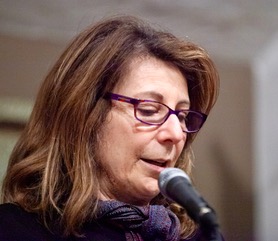Death Riding Shotgun: How Awareness of Our Mortality Impacts Poetry
with Lisa C. Taylor

October 23, 2024
6 Weeks
Original price was: $445.00.$380.00Current price is: $380.00.
Zoom Calls Tuesdays 7-8pm Eastern.
Original price was: $445.00.$380.00Current price is: $380.00.Enroll Now
How do writers grapple with the reality of our limited time on this planet? Is there a way to write about loss that isn’t overwrought or depressing? Many writers have taken on death either by exploring a personal loss or creating a sense of urgency that comes from knowing that the future is uncertain for all of us. While you may be thinking that this is a topic you’d rather not consider, it can give your poetry a new dimension. Some cultures honor those who went before us. Galway Kinnell in his wonderful poem Oatmeal talks about having breakfast with mentors now deceased. Surely our culture can do a better job bringing the end of life into the open, and celebrating each life stage in our writing.
How can your own mortality inform your work? In this class, we will read and discuss poems that deal with mortality while understanding that mortality, for a writer, is always present—looking in the window or darting across the road in front of us. Does an awareness of death make our work more alive? Are there ways to write about death that aren’t poems of loss and grief? We will be reading some unconventional poems and also writing our own poems. Poems of death are, in a sense, poems of life at its most visceral, acutely aware state. They can also be poems of celebration.
Samples of poems and stories that look at death from all different angles will be provided. The poet, Federico Garcia Lorca came up with the concept of Duende. He wrote “In every other country death is an ending. It appears and they close the curtains. Not in Spain. In Spain they open them. Many Spaniards live indoors till the day they die and are carried into the sun” Duende is the dark note and the sweet. It is a beautiful wound that never heals. Let us consider the many beginnings that can come out of this awareness.
This will be an interactive, and writing intensive class. There will also be humor and playfulness. Poetry is a multi-layered form of writing. The literal layer of a poem can tell a story, while the figurative creates images in our mind to support the story or observation. Poems can also have a rhythm or sound (even in free verse) and a shape (by using line breaks). Poetry is slow, unlike the world today. It is, in a sense, an antidote to life speeding up.
Course Objectives
We will learn:
- To understand the many levels of a poem of poetry: emotive, sensory, line breaks, and sound.
- To create poetry that has emotional impact, especially when writing about charged topics such as the fragility of life and the inevitability of death.
- To use fresh language and take risks and leaps in your writing.
- To learn from well-published contemporary poets writing about this topic.
- To trust your intuition and be open to revision.
- To learn about the larger community of poets and opportunities for sharing your poetry or publishing.
- Throughout the class, students will be expected to write poetry, respond to the poetry of peers, and revise poems for sharing and possible publication.
Weekly Zoom Schedule
This course will meet on Zoom on Tuesday from 7-8:00 P.M. Eastern Standard Time. We will not meet on Zoom during Week 2 and Week 5.
In Zoom, students will review lectures, ask questions about the course material, and engage in writing prompts. All sessions will be recorded for students that cannot attend.
Writing About Death: Course Syllabus
Week 1
What poets tackle mortality in their work without writing excessively or depressing pessimistic poetry? We will read sample poems by Galway Kinnell, Tony Hoagland, Kim Addonizio, and others. We will read and discuss poems this week that deal with mortality while understanding that mortality, for a writer, is always present—looking in the window or darting across the road in front of us. Does the awareness of death make our work more alive? As you pay more attention to the ordinary details of life, you will find a way to anchor mortality in specific details in the poems you will write the first week.
Week 2
The art of poetry is the art of looking and engaging your senses. As we discussed last week, Tony Hoagland’s poem “Threshold” shows us death in the body of an old woman in line at the supermarket. The reverence he shows for an unprompted reminder of the fragility of life makes this poem both tender and its message inevitable—perhaps more poignant because Tony died of cancer in his sixties, something he didn’t know about when he wrote the poem. You will write poems set in everyday places. A consciousness of mortality can come at a traffic light, during a snowstorm, or while taking out the trash on a perfect blue sky day.
Week 3
Duende is a word that poet Federico Garcia Lorca used for creative possession—inspiration in the face of death. It is an irrational power, almost like a demonic religious enthusiasm. “All that has black sounds has duende,” said Lorca in “Play and Theory of the Duende.” The Chilean poet, Pablo Neruda represented mortality through sound, in one case, barking dogs (but he removes the dogs), Neruda uses images and similes. I will share some duende poems and you will write your own poems representing mortality through image and sound.
Week 4
Emotion is essential to poetry. If a poem doesn’t make a reader feel something, is it a successful poem? Poems that address the big issues: life, death, love are poems we return to. The challenge is to make a poem fresh, emotionally moving, and leave the reader with an epiphany of sorts. I will share poems that do this successfully and we will practice writing our own poems that tackle mortality while making the reader more aware of what is important in life.
Week 5
Endings and revision are part of writing. When I first started writing, I found it difficult to revise my work. Now I view it as part of the writing process. I will share tips on revision and we will go over the poems you’ve written during these weeks. If you submit a revision ahead of time, you can share where you went with your changes and why. Sometimes the first lines of a poem are a doorway. They may ultimately be the first to go in a revision. Successful endings expand what the poet is trying to say so the magic of a poem continues.
Week 6
Time is always tapping us on the shoulder. None of us know how long we have to write, dream, publish. You are now a part of this writing community. We will share poems we wrote over these weeks and how this class has changed your thoughts about poetry. When you write what matters to you, it alters how you think and feel. That is the power of writing and poetry.
Why Take a Death Writing Course with Writers.com?
- We welcome writers of all backgrounds and experience levels, and we are here for one reason: to support you on your writing journey.
- Small groups keep our online writing classes lively and intimate.
- Work through your weekly written lectures, course materials, and writing assignments at your own pace.
- Share and discuss your work with classmates in a supportive class environment.
- Award-winning instructor Lisa C. Taylor will offer you direct, personal feedback and suggestions on every assignment you submit.
Original price was: $445.00.$380.00Current price is: $380.00.Enroll Now
Student Feedback for Lisa C. Taylor:
Lisa is generous and enthusiastic. She was particularly generous in offering guidance and encouragement about getting published, which was new for me, and invaluable. The topic, the assignments, and most importantly the quality of the work and the feedback offered by my fellow students were excellent. Interaction with fellow students throughout the week was the highlight. Peter Taylor
I thoroughly enjoyed the course. It motivated me to settle down and write, which is exactly what I was hoping. Lisa is a knowledgeable and dedicated instructor. Judith O'Leary
Lisa C. Taylor is a truly all-around phenomenal teacher. She kept us engaged and knows how to keep it interesting. She is very understanding and sweet. Great person and professor. Briana D.
Lisa created a stress-free classroom environment where everyone was encouraged to have their voice be heard. Each class was about something completely different. Brett S.
Lisa C. Taylor made us use our creativity to write and share with the class. She encouraged us to step out of the box and helped us to connect with each other. The activities were great and she was prepared for discussions every class. Caitlin F.
Extremely well-organized! I will use every piece of this material in my own classroom instruction. Lisa offered inspirational and practical information from which her students could draw. She provided exercises (ingenious, in my opinion) for getting reluctant students to write as well as offering evidence of their effectiveness. Great job! Jan G.
The room could hardly contain her passion for language, poetry, and teaching. I left this workshop strengthened as a writer, teacher, and human being. Darlene R.
The class discussed ZZ Packer’s story, “Drinking Coffee Elsewhere”. Here Professor Taylor handled what could have been a tough moment with compassion, wisdom, and grace. A few admitted they didn’t like the story because they could not identify with the unhappy main character. As one student remarked, the main character “had the world at her fingertips” as a college student at an Ivy League university. Professor Taylor thanked the student for her honesty and encouraged all the students to engage in an open and honest discussion about the issues related to the story, one of which was how to present class and race struggles in your work without sounding preachy or whiny or alienating readers. The discussion’s progression from judging the character to trying to understand her was impressive. Dr. Dan Donaghy, Eastern Connecticut State University
October 23, 2024
6 Weeks
Original price was: $445.00.$380.00Current price is: $380.00.
Zoom Calls Tuesdays 7-8pm Eastern.
Original price was: $445.00.$380.00Current price is: $380.00.Enroll Now


